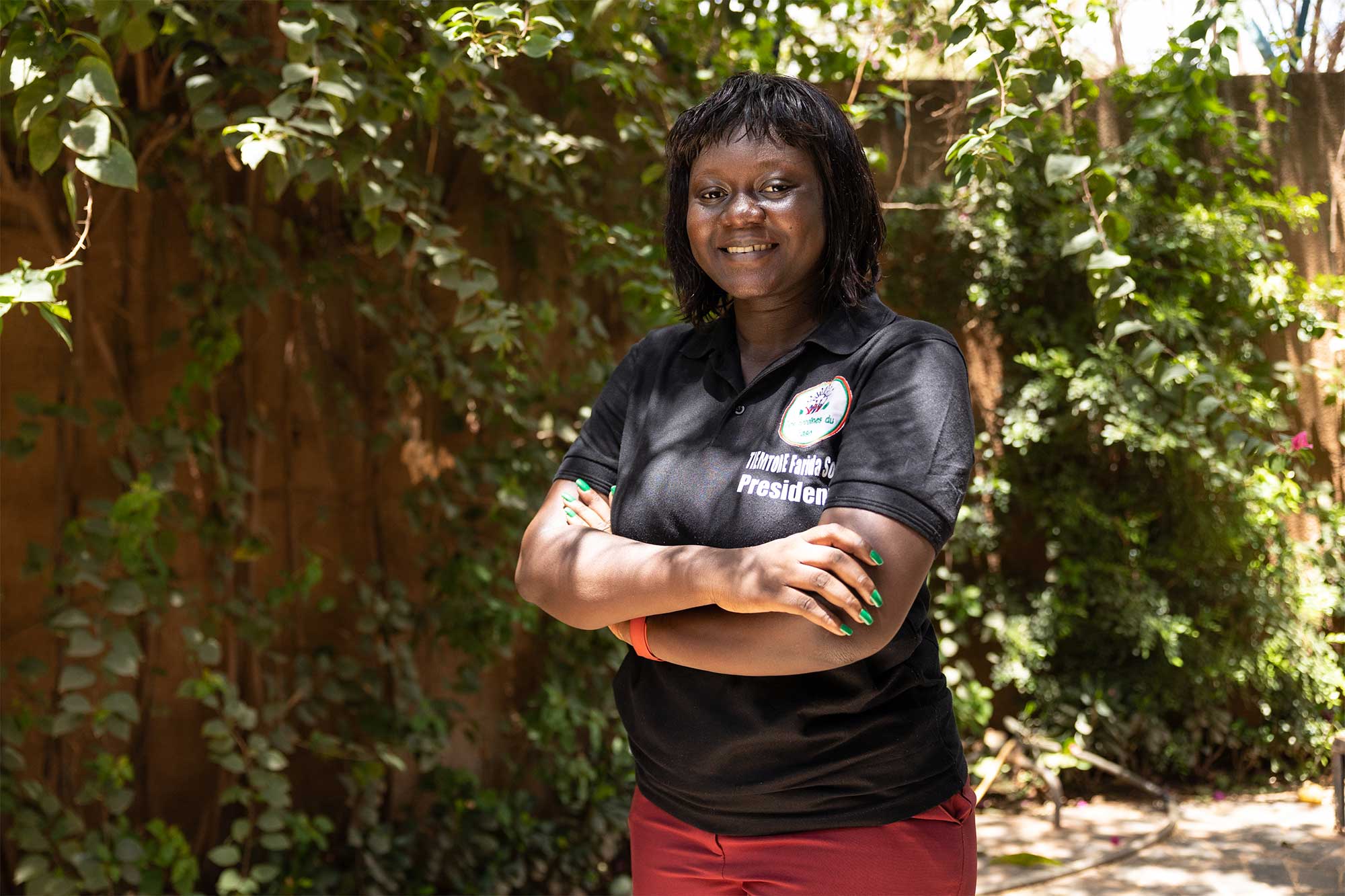

Through Voix EssentiELLES, Farida Fights for the Rights of Women and Girls in Burkina Faso
When Farida Tiemtoré was a 23-year-old student she had big dreams.
“I said to myself, ‘Why not create something on the internet to enable people to get the right information?’ Straightaway, the blog let me connect with girls and with female role models. I wanted these role models to share their experience to support other girls and women.”
Farida’s blog, Les Héroïnes du Faso (the Heroines of Faso) quickly became a platform to showcase successful women of all ages who were thriving on their own terms in Burkina Faso.
Over the first two years of its existence, the blog gave birth to an online community, and in 2021, Farida took the next step in her vision, uniting this online community by creating, with six other young women, Héroïnes du Faso – an organization, which works for the well-being and fulfilment of women and young girls.
This was no easy task.
Farida was beginning a master’s degree in business law, so finding the time to develop and lead a new organization was difficult. With her family’s support, she decided to study in night school and work on Héroines du Faso during the day.
There are also a number of challenges for women and girls in Burkina Faso, including high rates of child marriage, gender-based violence, early pregnancy and barriers to staying in school. Access to health care is inequitable, and due to conflict and insecurity, the UN estimates that one in five people are in need of humanitarian assistance.
But Farida and her colleagues remained determined to make a difference in the lives of women and girls.
Through Héroïnes du Faso, they organized outreach seminars, advocating for the education of girls among traditional and political leaders, campaigning for women in leadership positions and supporting women’s sexual and reproductive health and rights.
Last year, Farida and her colleagues launched an outreach project – La Caravane des Héroïnes du Faso – in six communities to teach young people about sexual and reproductive health and rights. Girls and young women learn where to seek confidential HIV and sexually transmitted infection (STI) tests and to protect themselves against coercion or sexual violence.
Thanks to Farida and her team, young women – often for the first time – are learning that there are places to advise them on their sexual and reproductive health needs and choices.

Farida Sonia Tiemtore, President of Les Heroines du Faso, in Ouagadougou, on June 13, 2023. Photo: Global Fund
“In our talks, we teach young women to negotiate the use of condoms with their partners. Girls tell us that they feel better equipped,” she says.
Héroïnes du Faso then reinforce the information they give to young people by advocating with national leaders to help address gender-based violence and the education of girls by supporting legislative changes.
Ibrango Boulou is an information and communication science student who is part of the Héroïnes du Faso community and has participated in their training activities.
“Héroïnes du Faso has the same aims as I do – that is, to fight for the rights and autonomy of women and everything related to sexual and reproductive health. It helps me to be a lot more confident,” she says.
Héroïnes du Faso was established with the support of Voix EssentiELLES, a fund that provides grants and capacity development for women and girls’ community-based organizations, groups and networks and their leaders, strengthening the participation of women and girls in decision-making processes and spaces that influence health policies and programs. Voix EssentiELLES currently champions organizations in Burkina Faso, Côte d’Ivoire and Senegal, and has plans to expand to additional countries. Voix EssentiELLES is managed by Speak Up Africa and is backed and co-funded by Fondation CHANEL and the Global Fund.
Over the last two years, Voix EssentiELLES has been supporting over 40 women and girls community-based organizations like Héroïnes du Faso. It is estimated that activities supported by Voix EssentiELLES have reached 658,000 people across the three countries.
“Here in Burkina, more than 10 organizations benefit from the Voix EssentiELLES fund, and this enables us to implement concrete actions in the field. This gives us more visibility, more credibility,” says Farida.
Farida is still in her twenties and has growing ambitions – for the women leaders of Burkina Faso, for Africa, and for herself.
“I hope I can continue to help others. I hope to feel fulfilled, professionally. I hope to be in a community where I can help vulnerable people even more.”
Farida says she dreams of a Burkina Faso where there is no genital mutilation of little girls and no sexual violence against women, where all girls go to school and where women can follow their aspirations – and she backs that dream with action.







